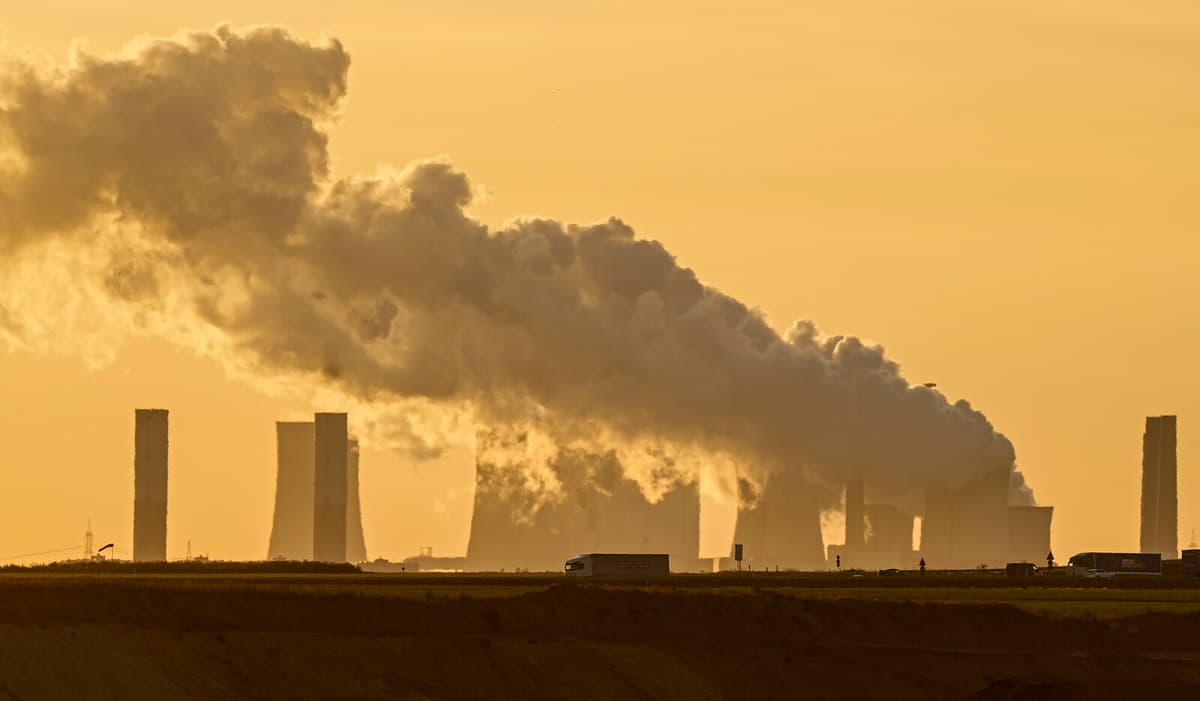Today's climate commitments entail only a 2.6 per cent reduction in emissions by 2030 – a fraction of what is needed to stop the worst consequences of climate change.
"Another year. Another record. This should set off alarm bells among decision-makers. We are clearly off track when it comes to achieving the goals of the Paris Agreement", says Celeste Saulo, head of the World Meteorological Organization (WMO), in a comment.
Faster than ever
"Carbon dioxide is accumulating in the atmosphere faster than at any time in human history", according to the WMO report.
UN climate chief Simon Stiell says that the world's commitments are "miles away" from the 43 per cent emission reductions needed to limit warming to 1.5 degrees.
The Paris Agreement is a global climate agreement that the world's countries agreed on in December 2015. According to the agreement, global warming should be kept well below 2 degrees compared to pre-industrial levels, with the ambition to limit it to 1.5 degrees.
But as long as emissions continue, carbon dioxide will continue to be stored in the atmosphere – leading to rising temperatures, warns WMO.
Continues to rise
Last year, the global average temperature on land and in the oceans was the highest recorded, according to historical data dating back to 1850. And since carbon dioxide is stored in the atmosphere for a long time, the temperature will continue to rise for decades, even if net emissions were to drop to zero immediately.
Carbon dioxide levels in the atmosphere stood at 420 ppm (parts per million) last year – compared to 417.9 ppm in 2022. Even then, the figure exceeded 50 per cent above pre-industrial levels for the first time. Methane and nitrous oxide levels have also increased. Carbon dioxide, methane, and nitrous oxide are the most important greenhouse gases caused by human activity.
"This is more than just statistics. Every part per million and every small temperature increase has real significance for our lives and our planet", comments Saulo.
The main cause of the warming of the Earth's climate is the change in the chemical composition of the air caused by human activities, primarily through the emission of greenhouse gases, mainly carbon dioxide.
Greenhouse gases enhance the atmosphere's ability to warm the Earth's surface – the so-called greenhouse effect becomes stronger.
Besides carbon dioxide, we emit other greenhouse gases, primarily methane and nitrous oxide, as well as a number of fluorinated gases.
Emissions of carbon dioxide through the combustion of fossil fuels are the main cause of the current climate change. Land use also contributes.
Methane seeps out from landfills and rice cultivation, and cows and sheep release the gas from their digestive systems when they ruminate. Methane is also a main component of fossil gas (natural gas) and can leak out during extraction and transport. Nitrous oxide is primarily released from nitrogen-fertilized agricultural land.
Source: The Swedish Environmental Protection Agency






